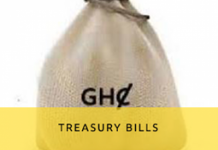
The Ghana Statistical Service (GSS) is advising businesses to rethink their pricing strategies and renegotiate contracts wisely, cautioning that while falling production costs may appear to ease pressures, they also squeeze profit margins.
In its latest advisory issued alongside the July 2025 Producer Price Index (PPI), the GSS stressed that companies must embrace innovation and efficiency, rather than relying solely on price reductions, to remain competitive.
“Falling costs bring opportunity, but tighter margins too. Stay ahead by innovating, not just adjusting prices,” the Service noted.
Data from the July report showed producer inflation slowing to 3.8%, down from 5.8% in June, marking the sixth consecutive monthly decline and the lowest rate since November 2023.
The drop was driven largely by easing prices in mining and quarrying (from 6.5% to 4.6%) and manufacturing (from 7.2% to 3.6%), which together account for nearly 80% of Ghana’s industrial output. Transport and storage costs fell deeper into deflation at -8.1%, while accommodation and food services held at -2.7%. In contrast, electricity and gas prices rose to 6.7%.
The GSS said the trend presents both opportunities and risks. For businesses, it recommended efficiency gains, smarter supplier negotiations, and innovative value creation instead of heavy reliance on price cuts. For government, it highlighted the importance of targeted incentives to support industries such as mining and manufacturing, secure jobs, and consolidate economic stability. For consumers, it urged households to hold businesses accountable by demanding fair prices and rewarding brands that pass savings on.
Analysts note that the latest figures are in stark contrast to a year ago, when producer inflation was more than 29 percentage points higher. The slowdown, they suggest, could point to more stable pricing conditions in the months ahead, provided businesses and policymakers adapt strategically.
The GSS concluded that Ghana’s economic recovery hinges not only on falling costs but on how effectively all stakeholders respond to them.
























































![[FREE FREE MONEY] Predict and Win a Guaranteed GH¢200 From Us EVERY WEEK](https://wordpress.ghanatalksradio.com/wp-content/uploads/2022/02/Predict-and-Win-Final-09-03-2021-218x150.jpg)
![[Predict & Win – 8th/Oct.] WIN A Guaranteed ¢200 From Us This Week](https://wordpress.ghanatalksradio.com/wp-content/uploads/2021/10/maxresdefault-16-218x150.jpg)
![[Predict & Win – 2nd] WIN A Guaranteed ¢200 From Us This Week](https://wordpress.ghanatalksradio.com/wp-content/uploads/2021/09/maxresdefault-50-218x150.jpg)
![[Predict & Win – 25th] WIN A Guaranteed ¢200 From Us This Week](https://wordpress.ghanatalksradio.com/wp-content/uploads/2021/09/maxresdefault-36-218x150.jpg)
![[Predict & Win – 18th] WIN A Guaranteed ¢200 From Us This Week](https://wordpress.ghanatalksradio.com/wp-content/uploads/2021/09/maxresdefault-23-218x150.jpg)







![[National cathedral] See full list of churches that have contributed since 2018](https://wordpress.ghanatalksradio.com/wp-content/uploads/2020/09/Ghana-National-Cathedral-GhanaTalksRadio-100x70.jpg)



